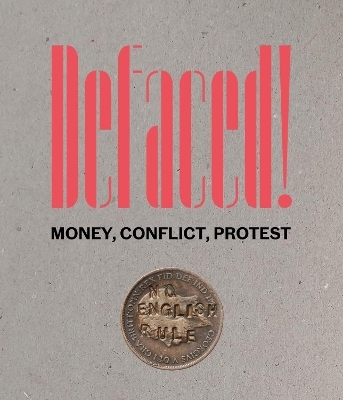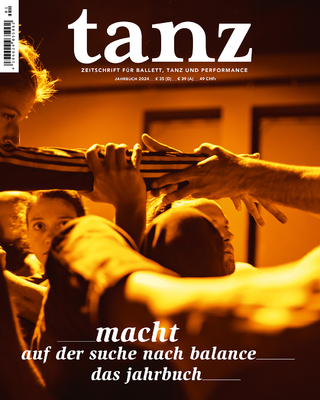
Defaced! Money, Conflict, Protest
Seiten
2022
Paul Holberton Publishing Ltd (Verlag)
978-1-913645-33-5 (ISBN)
Paul Holberton Publishing Ltd (Verlag)
978-1-913645-33-5 (ISBN)
- Noch nicht erschienen
- Versandkostenfrei
- Auch auf Rechnung
- Artikel merken
This fully illustrated catalogue is the first of its kind to examine the relationship between money, power, resistance and dissent. It accompanies major exhibitions at The Fitzwilliam Museum in Cambridge and the Art Gallery of Ontario in Toronto.
War, revolution and protest are defining themes in all periods of world history, shaping national identities and influencing material and visual culture in myriad ways. The ubiquity of money makes it a powerful vehicle for diseminating the messages of the state to the public, but the symbolic and nationalistic iconography of currency could also be subverted or mutilated in powerful acts of defiance, rebellion and propaganda. Beginning in Britain in the wake of the American and French Revolutions, the exhibition explores the political and social tensions present in society, and communicated through the production or defacement of money, over the past 200 years. It contrasts the use of money by the radicals of the nineteenth and early twentieth century, such as Thomas Spence, and the Suffragette movement, with the money produced by European empires as they scrambled to dominate the rest of the world. The currency histories of the two World Wars reveal the subversion of the very nature of what money is, and highlight the role of money as the tool of occupation, imprisonment, resistance and remembrance. The coins countermarked during the Troubles in Northern Ireland hint at the polarised nature of political discourse and sectarian violence. The exhibition culminates with the work of contemporary artists and activists who use money to highlight the challenges of the modern world, both locally and globally – as a canvas, as a raw material, or as a powerful means of communication.
From a unique coin commemorating the Peterloo Massacre of 1819 to a Syrian banknote refashioned to raise awareness of the refugee crisis, this publication showcases many newly acquired objects from the Fitzwilliam Museum collection, alongside materials from the Archive of Modern Conflict. These objects are enhanced by a number of important loans from museums and private collections, including the cannon used at the Battle of Mafeking, an exploded transit van and contemporary art works that take money, its authority and destruction as their theme. Each object constitutes a witness statement to its time and its conflict, and each section has its own story to tell. The chapters – by archaeologists, historians, curators, and artists – create a rich context for the more than 130 objects in the catalogue, most of which have never been studied in depth or published before.
War, revolution and protest are defining themes in all periods of world history, shaping national identities and influencing material and visual culture in myriad ways. The ubiquity of money makes it a powerful vehicle for diseminating the messages of the state to the public, but the symbolic and nationalistic iconography of currency could also be subverted or mutilated in powerful acts of defiance, rebellion and propaganda. Beginning in Britain in the wake of the American and French Revolutions, the exhibition explores the political and social tensions present in society, and communicated through the production or defacement of money, over the past 200 years. It contrasts the use of money by the radicals of the nineteenth and early twentieth century, such as Thomas Spence, and the Suffragette movement, with the money produced by European empires as they scrambled to dominate the rest of the world. The currency histories of the two World Wars reveal the subversion of the very nature of what money is, and highlight the role of money as the tool of occupation, imprisonment, resistance and remembrance. The coins countermarked during the Troubles in Northern Ireland hint at the polarised nature of political discourse and sectarian violence. The exhibition culminates with the work of contemporary artists and activists who use money to highlight the challenges of the modern world, both locally and globally – as a canvas, as a raw material, or as a powerful means of communication.
From a unique coin commemorating the Peterloo Massacre of 1819 to a Syrian banknote refashioned to raise awareness of the refugee crisis, this publication showcases many newly acquired objects from the Fitzwilliam Museum collection, alongside materials from the Archive of Modern Conflict. These objects are enhanced by a number of important loans from museums and private collections, including the cannon used at the Battle of Mafeking, an exploded transit van and contemporary art works that take money, its authority and destruction as their theme. Each object constitutes a witness statement to its time and its conflict, and each section has its own story to tell. The chapters – by archaeologists, historians, curators, and artists – create a rich context for the more than 130 objects in the catalogue, most of which have never been studied in depth or published before.
Richard Kelleher is a curator of medieval and modern money at the Fitzwilliam Museum, University of Cambridge.
| Erscheinungsdatum | 30.11.2022 |
|---|---|
| Sprache | englisch |
| Maße | 240 x 280 mm |
| Themenwelt | Kunst / Musik / Theater ► Kunstgeschichte / Kunststile |
| Kunst / Musik / Theater ► Theater / Ballett | |
| Sachbuch/Ratgeber ► Sport ► Tanzen / Tanzsport | |
| ISBN-10 | 1-913645-33-9 / 1913645339 |
| ISBN-13 | 978-1-913645-33-5 / 9781913645335 |
| Zustand | Neuware |
| Informationen gemäß Produktsicherheitsverordnung (GPSR) | |
| Haben Sie eine Frage zum Produkt? |
Mehr entdecken
aus dem Bereich
aus dem Bereich


